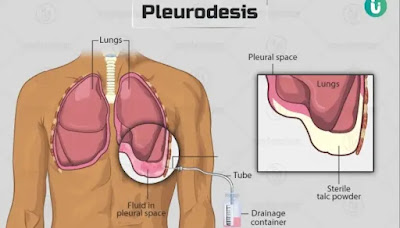Improved Mesothelioma Outcomes Expected After the Discovery of Cancer "Kill Switch"
The treatment of malignant mesothelioma has indeed been challenging, with traditional therapies like immunotherapy showing limited effectiveness compared to their success in treating other cancers.
Researchers from the University of California, Davis, and Indiana University have been exploring a potential breakthrough.
They're investigating a
'kill switch' that could potentially pave the way for more effective outcomes
in treating this difficult-to-treat cancer. This discovery holds promise for
improved treatment strategies and better outcomes for individuals battling mesothelioma.
Researchers’ Strategy May Unlock the Mystery of Killing Mesothelioma Cells
That study seems
groundbreaking! According to research published in Cell Death &
Differentiation, scientists have made significant strides in tackling solid
tumors like malignant mesothelioma.
They've discovered a
method to target and eliminate the blood vessel linings controlling access to
these tumors.
By activating a cellular
component called Fas, or CD95, within these blood vessel cells using specific
antibodies, they initiate a sort of 'timer bomb' effect, causing these cells to
self-destruct.
This approach creates
vulnerabilities within the blood vessel linings, allowing better penetration
for immunotherapy and other treatments to reach the core of the tumor.
Through experiments
involving both mouse models and human cell lines, the researchers have
identified specific antibodies capable of triggering the self-destruction of
these Fas cells, potentially revolutionizing the treatment landscape for solid
tumors like mesothelioma.
Immunologist Explains How Antibodies Can Lead to
Mesothelioma Cell Death
The identification of
Fas as highly expressed in various mesothelioma cell lines presents a promising
avenue for individuals affected by this rare asbestos-related disease.
Immunologist and senior
study author Jogender Tushir-Singh noted that previous attempts to target this
receptor had been unsuccessful.
With the discovery of
this epitope, there's newfound potential for therapeutic strategies aimed at
targeting Fas in tumors, providing hope for improved treatments.
The researchers
emphasize that their findings address a longstanding challenge in solid tumors
like malignant mesothelioma, often referred to as 'cold tumors.'
These tumors pose
difficulties as immune cells struggle to infiltrate their microenvironments,
hindering the efficacy of therapeutic interventions. By targeting and
eliminating Fas cells, the aim is to create an entryway for cancer therapies
such as CAR-T, known for their success in other cancer types, to access and
treat the tumor effectively.
For individuals impacted
by malignant mesothelioma, this research offers a beacon of hope.
Asbestos Warning On the Occasion of National Asbestos
Ref: https://mesothelioma.net/




Comments
Post a Comment